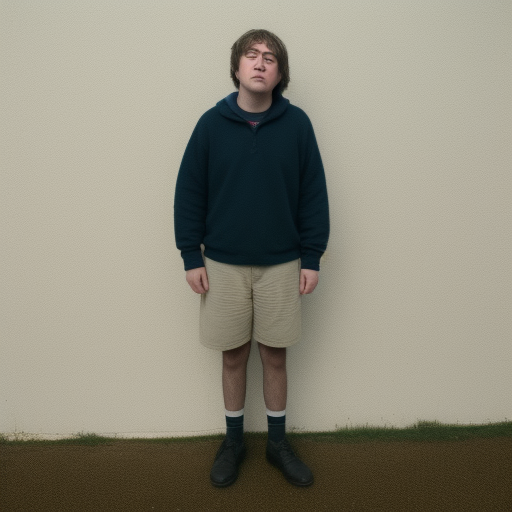Not sure I could ever live with that - anyone able to test if multi monitors works?
deleted by creator
I’m still waiting for hexagon monitors as they are clearly the bestagon.
I thought this was an Onion article a few wks ago
It all comes from a blog post from 2021. A picture from it went viral on X/Twitter a week ago. (First two links in the article) Since then everyone is posting it.
I can’t obviously see it there, I do think its a bit stupid, but I would have thought that Toms Hardware wouldn’t have bitten the onion? Or have they gone downhill that far?
They’ve gone down that far… Lol
I could totally see using this as a display wall. *Kyle in a bunch of them as a store display or a small display.
*When you ask for tile and google gives you Kyle.
Damnit Kyle!!
“our market research shows an increased in interest in 22* displays in the last quarter”
Wasn’t this how the Morbius sequel was memed into existence
Triangular monitors with 22 degree corners
But will it automatically adjust with an internal gyroscope?
The Internet was and continues to be a mistake.
Said a guy on the internet
deleted by creator
You have to see the irony in the statement though…
deleted by creator
You are on the internet, saying internet was and is a mistake. Just found it funny is all. Sorry I bothered you with my comment.
I swear to fucking Stallman, this is at least the fourth time this past week I’ve seen a unique post about this same fucking shit. One dude writes an article going “xrandr let’s you rotate the screen 22 degrees” and the holiday tech news cycle just loses its mind.
lets* you rotate
d’oh, thanks
You know how when your coworker leaves their desk and forgets to lock their computer, you change their desktop wallpaper to Oompa Loompas or whatever?
This is the new that.
How fine is the resolution of the tilt? I wonder how long it would take to figure out that your display was tilted by 1 degree or less.
Very fine, as long as the computer uses X (the
goodless shitty one).xrandrcan use a matrix to transform the entire output, so you can scale, rotate, move, or shear it as much as you’re evil.Wayland devs, wake up and implement the features we truly need!
The biggest hurdle is getting shit past the GNOME developers. Wayland could implement a protocol that cures leukemia, and they’d still raise a stink about use-cases because it doesn’t touch other types of cancer.
Doesn’t need a protocol, just compositor support. Unless you want windows to be aware of being rendered at an angle, that is.
Also I do wonder how broken that stuff is under X as the WM protocols that I remember definitely assumed axis-aligned monitor and windows.
They’ll end up spending more time arguing about it than implementing it
Technically that’s compositor level stuff, and it probably can even treat it like an actual diagonal display and prevent windows from going there and everything.
This is a good example of why some of the protocols are taking so long. Once finalized, it’ll probably somehow also be capable of handling… that.
With an accelerometer and a compositor written for that can probably even keep it level in real time. Tilt monitor and windows rotate to match automatically.
Yeah but, will antialiasing be noticeable?
I actually think I’d notice quite quickly as all horizontal and vertical lines would be slightly jagged.
Don’t you run with at least 8xAA in the desktop??
it always used to be using the windows command to rotate the screen, this will just add a new layer of confusion.
…or as they are using linux it will probably be seen as a good challenge
Windows command to rotate the screen, screenshot the desktop, set it as wallpaper, hide the icons & start bar… Functionally reversed mouse, and can’t click anything.
I just aliased
cdto eject the disk drive.My cupholder just went away!
Old school.
Earth’s axial tilt is 23.5°, COINCIDENCE? I DON’T THINK SO!!!
Seriously though, I’d be tempted to set it to 23.5° as a gag and tell everyone “Well, for full accuracy, you have to correct for the Earth’s axial tilt…”
Keep in mind that the planet rotates, so the angle between the ecliptic and the screen has to be recalculated periodically with a cron job.
Should be easy to automate it completely with an arduino and a stepper motor.
Alright you crazy bastards. Go and make this a thing.
turns on display
There is a swirl displayed
Display starts spinning
“You’re getting sleepy…”
Don’t give governments any more ideas.
Make it and then sell it to my wife to give to me for a gag gift next Christmas.
Her budget for such a thing would probably be ~$100 if you need a target price point.
For this I would use a servo, not a stepper.
We just need round monitors so the dimensions don’t change when rotating the display.

And a gyroscope to rotate the image so it doesn’t rotate when rotating the display.
I can’t even get my second screen to turn on with Linux mint.
Really my triple monitor set up works without a hitch
I think it’s a weird compatibility issue with my r9 380, it works on windows and shows up in xrandr just constant no signal.
deleted by creator
Meh, screen angle is constant. Not impressed until it supports screens with a constant angular velocity.
Make it spin at 3600rpm to simulate a circular surface
With a high enough spin rate, it’d be like having a much larger monitor.
This way if you align your monitor with the rotational axis of the Earth, the image appears to sit still in space.
Alt-Azmuth mount
It would be interesting to have an app that tilted your screen to see what it would look like from other places on the globe. I’m sometimes curious about the angle offset I have with various other parts of the world.
Though you’d need to be able to rotate in two dimensions to properly capture the differences on a globe. It might be able to, if it’s rendering the desktop to a 3d surface and applying the rotation to that.
Actually, even cooler would be to have an actuator that would physically rotate the monitor around all 3 axii instead of rotating what it displays.
requires xrandr
Cries in wayland…
Iirc Wayland as a protocol supports rotation of Window surfaces. I’m not sure if any of the compositors have exposed it as an option. Maybe Weston
Wayfire has a plugin to rotate windows.
And my teachers said not to write all my Python in one line.
[for x in range(x: lambda: [while y < z class foo(x: int…
Would be interesting to see a gui that maximizes the content based on rotation if that were even possible
No thanks, I need this as much as I need a VR desktop
Why would I need a Dutch angle monitor?
For correcting Dutch Angle video… Obviously.
Make a monitor that corrects video tilt in real-time while watching episodes of Star Trek.
Or a Rick Mercer rant (that is a very specifically Canadian use though)
The single use case I can think of are isometric games.
The use case I see is screens mounted on something that moves.
It’s easy with accelerometers to know the orientation, so you can display things on something that in its whole or has parts that move in an additive way.
Imagine an movie screening with the screen mounted on a float in the ocean.
The float moves with the waves. You can stabilize the image of the movie to be still while the screen itself tilts.
Something like this, but then with a direct screen instead of a projected one.
Another use case would be applying this to smartwatches or other displays like that.
You could make the output of the screen always be perfectly aligned with your line of sight rather than have it tilted at an angle parallel with your arm.
Knowing how big Linux is in embedded systems I almost wonder if it was originally implemented for some kind of full-motion simulator since that could easily call for very funky display mounting
I think most people would just use media server software like pixera, d3, touchdesigner etc to accomplish playback of video on a moving surface with feedback sensors.
It’s established tech, plenty of integrations, and most companies that are able to deliver something like this aren’t a linux-first type of company.
If it was for an installation, something bespoke might be made using Linux. But the cost of touchdesigner and a suitable computer are tiny compared to doing this using Linux and then supporting and documenting it (especially considering how widespread skills in touchdesigner/pixera/d3 are in the industry Vs more esoteric Linux skills)
My god how many people are going to post this?
























